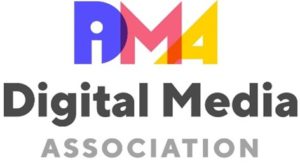
July 12, 2023
The Honorable Chris Coons
Chair, Subcommittee on Intellectual Property
Senate Judiciary Committee
The Honorable Thom Tillis
Ranking Member, Subcommittee on Intellectual Property
Senate Judiciary Committee
Dear Chairman Coons and Ranking Member Tillis,
Thank you for holding a hearing on artificial intelligence and copyright. I appreciate your interest in this topic and the opportunity to share DIMA’s perspective.
DiMA represents the world’s leading audio streaming companies, whose innovations are the economic engine that have revitalized the music industry. DiMA and its members – Amazon, Apple Music, Feed.fm, Pandora, Spotify, and YouTube – advocate for policies that ensure that music fans have legal access to music anytime, anywhere they want it, and that artists and songwriters can connect with old fans and make new ones around the world.
Questions about the use and impact of AI technology, its applications and how they intersect with existing law are an area of focus for music industry stakeholders, including DiMA and our member companies. AI has been used as a tool in the music industry for many years, and as the technology continues to rapidly evolve, it has the ability to assist creators (including professional human musicians and songwriters) and improve the way music is created, distributed, and consumed.
Music has long been at the forefront of potentially disruptive and new technology, and the development of new technology has often been met with initial concern by many in the music industry. However, the success of today’s streaming-driven music industry is definitive proof that music and technology can, should, and most often do, learn to work together and enrich our musical traditions.
Importantly, AI is not one size fits all. We believe this hearing, and future Congressional engagement, are key to helping to highlight the different types of AI and its uses, and providing greater context around conversations, which we believe will ultimately lead to more fruitful and productive conversations.
Current discussions around AI lack grounding definitions, including the lines between generative and assistive AI and foundation models versus applications. The entire music industry will benefit from establishing a common set of facts in the discussion, and/or focusing questions around specific AI applications. Similarly, policymakers benefit from shared substantive expertise about AI technologies, evolving trends, and the potential effects on artistic expression, innovation, and commercial markets before proposing changes. DiMA members are willing to assist the government in pursuing an evidence-based path. For example, I recently participated in a listening session held by the U.S. Copyright Office regarding AI and Music and Sound Recordings, which I hope will be the start of this kind of analysis.
At a high-level, DiMA members believe that existing U.S. copyright laws, including (1) copyrightability (including originality, de minimis contributions, scenes a faire, and the idea/expression dichotomy); (2) infringement (including questions of unlawful appropriation, substantial similarity, and causation); and (3) the Digital Millennium Copyright Act, as well as laws outside of copyright to protect the right of publicity, including one’s name, voice, and likeness, are likely to be sufficient to address creations made with or by AI technology.
Different legal doctrines can and should be employed to consider questions arising from AI- generated music, but copyright law should not be stretched or changed to address questions that more properly arise under laws relating to trademark, right of publicity, or unfair competition.
Finally, these discussions around AI – particularly as they relate to music – must take into account data, a topic on which DiMA members have extensive experience. There have long been data challenges in the music space, including with ensuring that accurate and complete metadata identifiers are included in recordings at the time of distribution. These challenges existed before streaming, continue to exist today and are highly relevant to discussions of the treatment of AI- generated music. Music streaming services should not be – and cannot be – the arbiters as to what is or is not AI-generated. It is not possible with the existing data, and any new data must come from the copyright owners and creators. Data accountability must exist throughout the chain from creation to distribution.
Thank you again for holding this important hearing. Please do not hesitate to contact DiMA if we can be of assistance as you continue consideration of this topic. We appreciate the opportunity to have our perspective considered and look forward to continued engagement on this topic.
Sincerely,
![]()
Garrett Levin President and CEO
Digital Media Association (DiMA)
